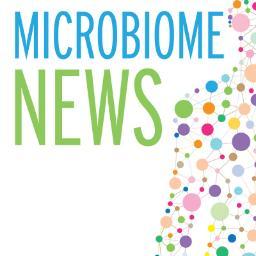What is the human microbiome?
The human microbiome is "the full array of microorganisms (the microbiota) that live on and in humans and, more specifically, the collection of microbial genomes that contribute to the broader genetic portrait, or metagenome, of a human. The genome s that constitute the human microbiome represent a remarkably diverse array of microorganisms that includes bacteria, archaea (primitive single-celled organisms), fungi, and even some protozoans and nonliving viruses. Bacteria are by far the most numerous members of the human microbiome: the bacterial population alone is estimated at between 75 trillion and 200 trillion individual organisms, while the entire human body consists of about 50 trillion to 100 trillion somatic (body) cells. The sheer microbial abundance suggests that the human body is in fact a “supraorganism,” a collection of human and microbial cells and genes and thus a blend of human and microbial traits."
s that constitute the human microbiome represent a remarkably diverse array of microorganisms that includes bacteria, archaea (primitive single-celled organisms), fungi, and even some protozoans and nonliving viruses. Bacteria are by far the most numerous members of the human microbiome: the bacterial population alone is estimated at between 75 trillion and 200 trillion individual organisms, while the entire human body consists of about 50 trillion to 100 trillion somatic (body) cells. The sheer microbial abundance suggests that the human body is in fact a “supraorganism,” a collection of human and microbial cells and genes and thus a blend of human and microbial traits."
Photo Credit: Pacific Northwest National Laboratory - PNNL/Flickr (CC BY-NC-SA 2.0)
Rogers, K. (n.d.). Human Microbiome. In Encyclopedia Brittanica online. Retrieved from http://www.britannica.com/science/human-microbiome.
Fun Stuff
- Human Food Project
 "American Gut gives you an opportunity to join this research project and to compare the microbes in your gut to those in the guts of thousands of other people in the US and around the world. '
"American Gut gives you an opportunity to join this research project and to compare the microbes in your gut to those in the guts of thousands of other people in the US and around the world. ' - Rob Knight: How Our Microbes Make Us Who We AreOne of the most popular Ted Talks on the human microbiome by Rob Knight, a pioneered in studying the human microbes.
- uBiome
 A biotech company that will sequence your microbiome.
A biotech company that will sequence your microbiome.
Current News
- Microbiome News "Be on top of what's going on in the Microbiome world"
 "Bo on top of what's going on in the microbiome world."
"Bo on top of what's going on in the microbiome world." - Microbiology and Immunology Community"Microbiology – the big word for little things. Bacteria, fungi, viruses, antibodies, phage - we cover it all. Bringing you news, techniques, online events and more."
- Bioscience PhD Forum"The latest news and views from Bioscience PhD students."
- Human Microbiome Live News
 Stay on top of microbiome news and research.
Stay on top of microbiome news and research.